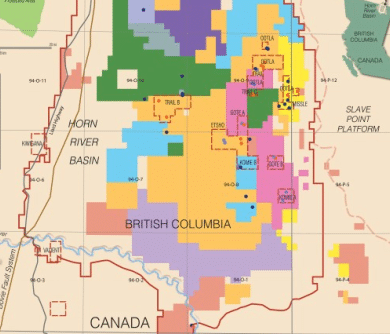Independent Members of the Legislative Assembly (MLA) in British Columbia are calling upon Premier Christy Clark to launch a comprehensive investigation into hydraulic fracturing. This demand comes late in the game, some say, after the world’s largest fracking operations have already taken place in the remote and pristine wilds of the province.
BC’s two Independent MLAs, Bob Simpson and Vicki Huntington, are not alone in their request for a full examination of the human and environmental health implications of the province’s unconventional gas resources. Supporting the appeal are numerous citizen and environmental groups, journalists, and First Nation’s representatives. They believe the rapid development of gas in BC’s north is taking place without consideration of the costs to public health and safety.
Bob Simpson, MLA for Caribou North, worries that mounting public concern could lead to a high profile confrontation between industry and environmental groups, much like those seen in the 1990s over logging practices. “I’m concerned this is going to be our next war in the woods,” Simpson says.
The growing list of threats to drinking water and public health posed by fracking is the chief driver behind the recent call for a thorough, non-partisan investigation into the process by a special legislative committee.
“It is incumbent on the government to ensure it fully understands the cumulative impacts associated with developing this resource,” says Vicki Huntington, MLA for Delta South, adding that public policy is forcing the rapid expansion of unconventional gas in regions like BC’s northeast.
In light of growing public concerns, the MLAs are demanding a full review of the economic, environmental and health implications of unconventional gas drilling before the province encourages further development.
More courageous jurisdictions, such as Quebec and New York, have called for a moratorium on hydraulic fracturing and unconventional gas development until the risks associated with the practice can be more fully understood. New York just extended its ban on fracking for another year, urging caution until scientists can conduct the necessary safety studies. The MLAs and additional signees wonder why BC has not taken the same precautionary approach. Which begs the question: what are these other jurisdictions protecting that we are not?
One of the endorsing signees, Ben Parfitt of the BC Centre for Policy Alternatives, has already answered that question. In a report written for the Program on Water Issues at the Munk School of Global Affairs, Parfitt outlines the immense scale of fracking operations in BC’s northeast, calling the region the “epicenter” of unconventional gas development.
In the province’s Horn River Basin, industry giants like Encana and Apache Corp. have conducted operations of a previously unimaginable size. A single fracking operation in early 2010 at Two Island Lake spanned for 111 days straight, blasting 724 separate wells and using 5.6 million barrels of BC’s fresh water, diverted from local waterways.
Encana and Apache have plans to eclipse these numbers on two new well pads hosting 28 wells that will extend for even greater vertical distances underground. The project will require an estimated 2.12 million cubic meters of water. For reference, that much water would fill 848 Olympic sized swimming pools.
The BC Oil and Gas Commission oversees the gas industry’s activities, including water withdrawals. The Commission, which did not have a hydrogeologist on staff until mid 2010, has issued hundreds of temporary water withdrawal permits granted under Section 8 of the Water Act. Generally, industry in BC must apply for long term water licenses through official bodies such as the Ministry of Environment that assess the broader environmental implications of water withdrawal for a given area. However, the oil and gas industry enjoys exceptional treatment, allowed to apply directly to the Oil and Gas Commission, a conflicted agency simultaneously tasked with encouraging the “sound development” of these fossil fuel resources.
Section 8 approvals are ‘rolled over’ from year to year, meaning that companies can make continuous water withdrawals without any of the normally required ecological evaluation; a practice that the BC Oil and Gas Commission’s new hydrogeologist, Allen Chapman, admits is illegal.
The Commission, financially supported by the industry, has come under fire, even from the province’s Auditor General, who finds that “while the OGC has supported the development of some tools and methodologies to assess cumulative effects, no formal provincial program is yet in place to help manage the environmental effects of developments on the land base.”
With industry projections of up to 50,000 wells for the Horn River Basin alone, 200 of those planed for 2012, the initiation of a full-scale investigation cannot come too quickly. In fact, the call for such a review may be too late as the industry plows ahead with the fracking boom.
Set to break its own records for the largest fracking operations in history, Parfitt suggests that unconventional gas fracking in BC may already be posing an environmental threat equivalent to the Alberta tar sands.
Image Credit: Interactive map of gas drilling in the Horn River Basin from the Unconventional Gas Center.
Subscribe to our newsletter
Stay up to date with DeSmog news and alerts







